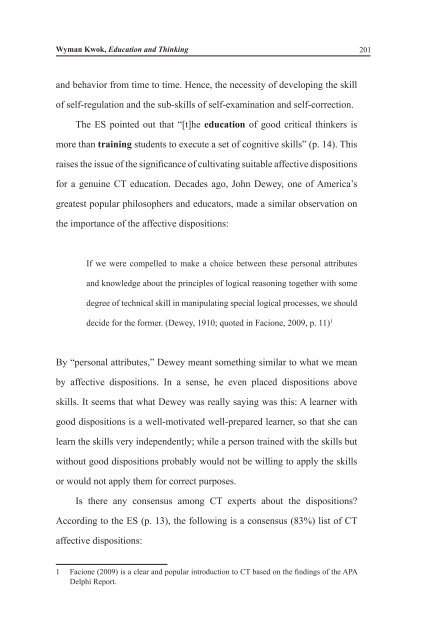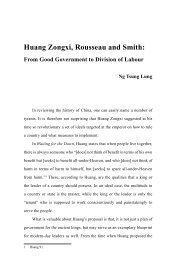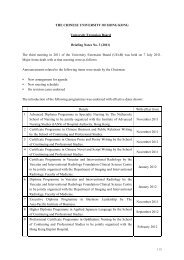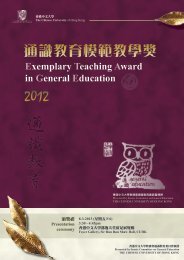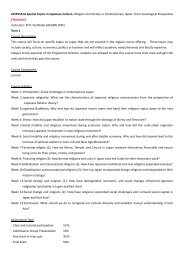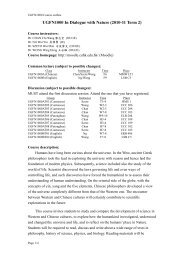ä¸è¼å ¨æ¸ - The Chinese University of Hong Kong
ä¸è¼å ¨æ¸ - The Chinese University of Hong Kong
ä¸è¼å ¨æ¸ - The Chinese University of Hong Kong
Create successful ePaper yourself
Turn your PDF publications into a flip-book with our unique Google optimized e-Paper software.
Wyman Kwok, Education and Thinking 201<br />
and behavior from time to time. Hence, the necessity <strong>of</strong> developing the skill<br />
<strong>of</strong> self-regulation and the sub-skills <strong>of</strong> self-examination and self-correction.<br />
<strong>The</strong> ES pointed out that “[t]he education <strong>of</strong> good critical thinkers is<br />
more than training students to execute a set <strong>of</strong> cognitive skills” (p. 14). This<br />
raises the issue <strong>of</strong> the significance <strong>of</strong> cultivating suitable affective dispositions<br />
for a genuine CT education. Decades ago, John Dewey, one <strong>of</strong> America’s<br />
greatest popular philosophers and educators, made a similar observation on<br />
the importance <strong>of</strong> the affective dispositions:<br />
If we were compelled to make a choice between these personal attributes<br />
and knowledge about the principles <strong>of</strong> logical reasoning together with some<br />
degree <strong>of</strong> technical skill in manipulating special logical processes, we should<br />
decide for the former. (Dewey, 1910; quoted in Facione, 2009, p. 11) <br />
By “personal attributes,” Dewey meant something similar to what we mean<br />
by affective dispositions. In a sense, he even placed dispositions above<br />
skills. It seems that what Dewey was really saying was this: A learner with<br />
good dispositions is a well-motivated well-prepared learner, so that she can<br />
learn the skills very independently; while a person trained with the skills but<br />
without good dispositions probably would not be willing to apply the skills<br />
or would not apply them for correct purposes.<br />
Is there any consensus among CT experts about the dispositions<br />
According to the ES (p. 13), the following is a consensus (83%) list <strong>of</strong> CT<br />
affective dispositions:<br />
<br />
Facione (2009) is a clear and popular introduction to CT based on the findings <strong>of</strong> the APA<br />
Delphi Report.


